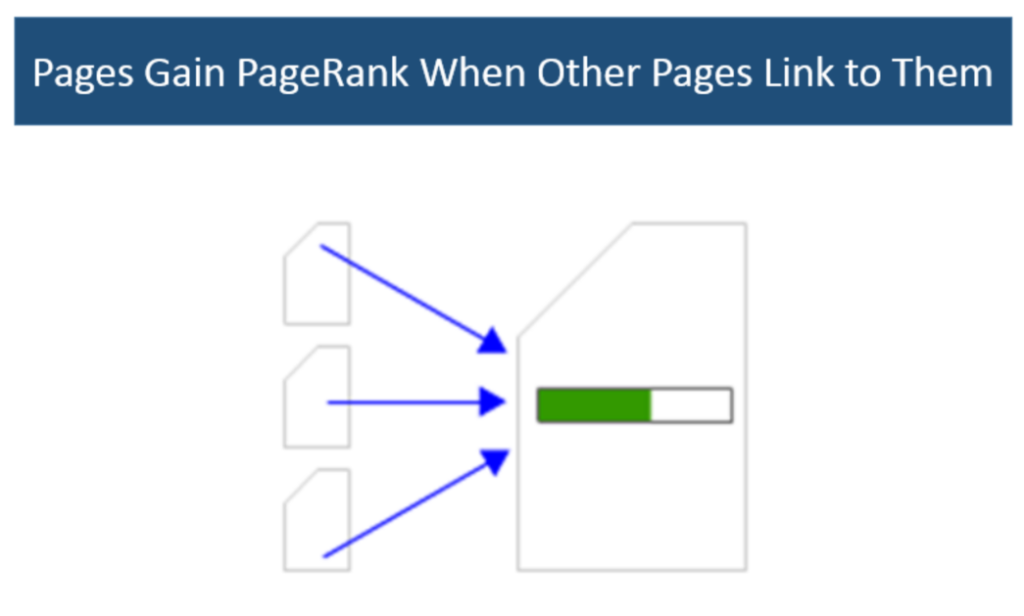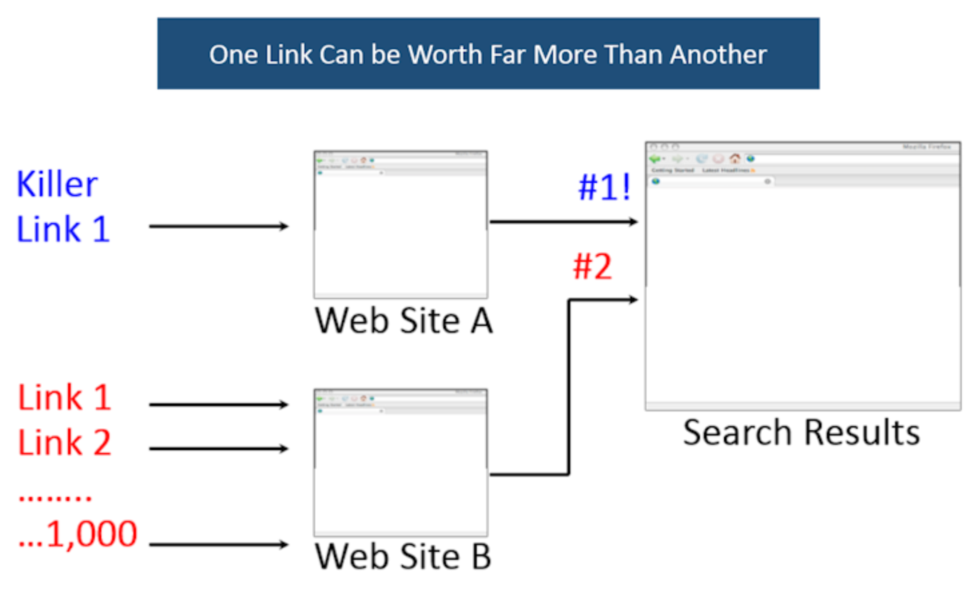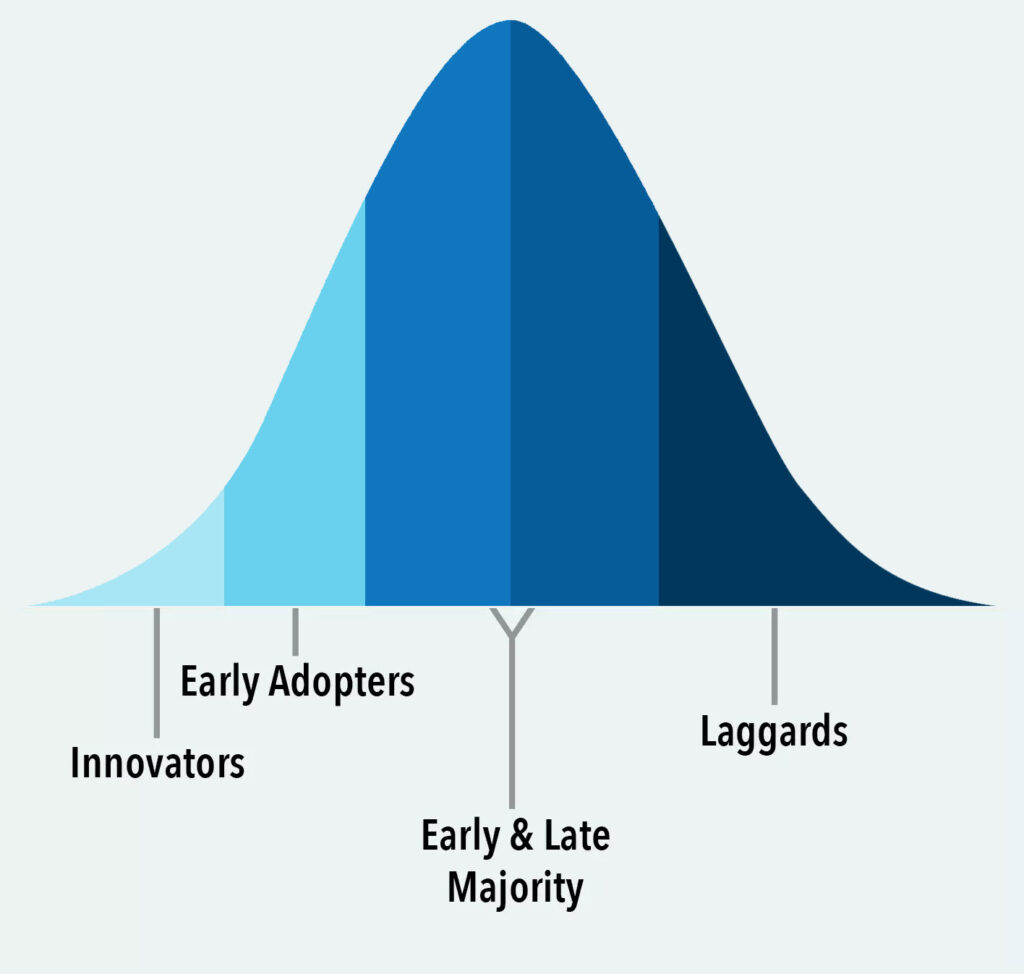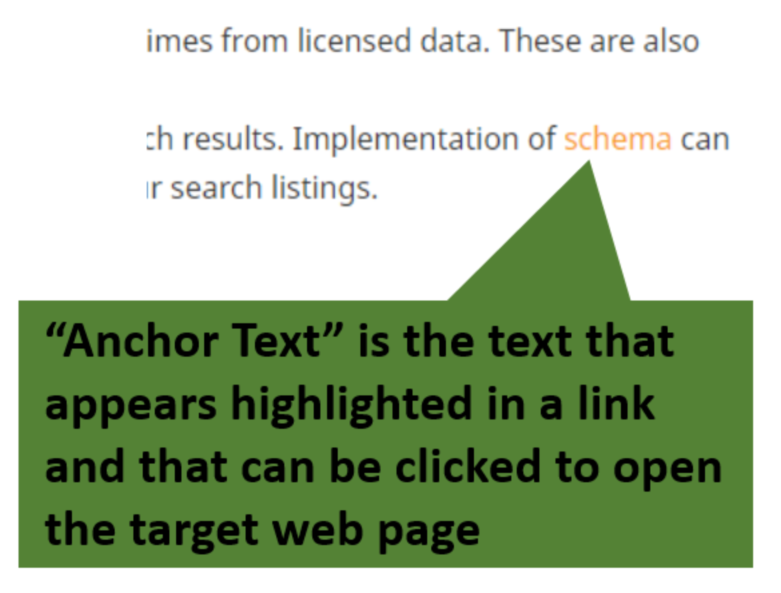

Last updated on

SEO professionals often excel at complicating things, which isn’t necessarily a criticism. Tasks like understanding search algorithms, coding websites, selecting KPIs, and crafting content strategy require specialized knowledge and are inherently complex.
However, despite the intricacies, there are only a few key factors that truly determine SEO success. These can be distilled into three essential pillars:
Just as nutritionists emphasize the need for balanced intake of protein, carbohydrates, and fats for bodily health, SEO thrives on a balanced approach to these foundational elements.
In SEO, authority signifies the importance or prominence of a webpage compared to others that could potentially appear in search results for a specific query.
Modern search engines like Google employ numerous factors, known as signals, to gauge the authority of a webpage.
Why does Google prioritize assessing page authority?
For most search queries, there are countless pages competing for ranking positions. Google aims to prioritize pages that are most likely to provide users with accurate, trustworthy information that precisely matches the query’s intent.
Google prioritizes serving users with the most authoritative pages because satisfied users are more likely to return to Google, increasing exposure to Google’s ads—the primary source of its revenue.
The initial challenge search engines faced was how to evaluate the authority of webpages effectively.
Early search engines initially used human evaluators, but as the internet expanded rapidly, this approach became impractical to manage.
Google emerged as the dominant force in search because its founders, Larry Page and Sergey Brin, introduced the concept of PageRank. PageRank utilized links from other webpages as weighted citations to determine the authority of a page.
Page and Brin recognized that links represented a pre-existing system akin to a dynamic polling mechanism, where authoritative websites “voted” for pages they deemed trustworthy and pertinent to their audience.
Search engines view links similarly to scholarly citations: the more scholarly papers relevant to a source document that cite it, the stronger its perceived authority.
The credibility and trustworthiness of each citing source also factor into this evaluation.
Therefore, among our three foundational categories, authority was the initial focus because it was relatively straightforward to address, given the widespread use of hyperlinks on the internet.
Relevance and user experience would be addressed subsequently as machine learning and AI-driven algorithms evolved.
Google’s rapid ascent to dominance as a search engine was fueled by a groundbreaking innovation: the use of link analysis as a key ranking factor.
This pivotal shift began with Larry Page and Sergey Brin’s seminal paper, “The Anatomy of a Large-Scale Hypertextual Web Search Engine.” Their key insight was that the web operates on the principle of interconnected documents linked via hyperlinks.
When a website links to another site, it potentially directs its users away, creating a scenario where publishers only link to sites they deem valuable and trustworthy for their audience.
In essence, linking to another site serves as a form of endorsement or “vote,” indicating that the linked page is a premier resource on the web for a specific topic.
Therefore, the more endorsements (or votes) a page accumulates, the higher it is likely to rank in search engine results, reflecting its perceived authority and value.
An integral component of the early Google algorithm was PageRank, designed to assess the importance of webpages by evaluating the links they attract.
According to this concept, pages with numerous valuable links pointing to them will achieve a higher PageRank. Consequently, they are more likely to rank prominently in search results compared to pages with lower PageRank scores.
When one page links to another, it transfers a fraction of its own PageRank to the linked page. This process means that pages accrue greater PageRank based on both the quantity and quality of incoming links they receive.

The concept of “more votes are better” holds some truth in theory, but the reality is far more intricate.
PageRank scores span from a foundational value of one to potentially surpassing trillions.
Pages with higher PageRank possess significantly more influence to pass on through links compared to those with lower PageRank. In practical terms, a link from a high PageRank page can be worth over a million times more than a link from a lower PageRank page.

However, the PageRank of the linking page isn’t the sole determinant.
Google also considers factors such as the subject matter of the linking page and the anchor text used in the link, which pertain to relevance and will be discussed further in the next section.
It’s crucial to recognize that Google’s algorithms have progressed considerably beyond the initial PageRank concept.
The evaluation of links has undergone substantial changes, some of which are publicly understood, while others remain undisclosed.
There’s considerable talk about the role of trust in search rankings and how it influences the quality of links.
To clarify, Google states it doesn’t employ a specific concept of trust in its evaluation of links or rankings. Therefore, discussions on this topic should be approached with caution.
The origins of these discussions trace back to a Yahoo patent concerning TrustRank. This concept proposed that starting with a select group of meticulously chosen, highly trusted websites and measuring the number of clicks required to reach your site could gauge its trustworthiness.
It’s worth noting that Google has consistently maintained that it does not incorporate such metrics into its algorithms.
However, in 2013, Google was granted a patent concerning the assessment of link trustworthiness. It’s important to note, though, that the existence of a granted patent doesn’t necessarily imply its active implementation in practice.
For your own evaluations, considering a site’s trustworthiness as a source of links isn’t a bad approach. Here are some indicators to consider:
While Google may not evaluate trust in the same manner as you do, it’s likely that other aspects of its algorithm will still devalue links from sources exhibiting these traits.
Now that you understand the importance of acquiring links for SEO success, it’s time to devise a strategy to obtain them.
The key to achieving success lies in recognizing that Google favors a holistic approach to link building.
Google actively discourages and, in some cases, penalizes strategies aimed at artificially acquiring links. Such practices include:
Google’s preference is for websites to naturally earn or attract links by providing valuable content and effectively promoting it.
So, how can you accomplish this?
The first crucial insight involves identifying potential linkers to your content.
Based on research from the University of Oklahoma, here are profiles of major groups within any market space:

Who are the likely candidates to implement links?
Certainly not the laggards, nor the early or late majority.
Rather, it’s the innovators and early adopters. These individuals are active on media platforms or maintain blogs, making them likely to include links to your site.
Other sources of potential links include locally-oriented entities like chambers of commerce or local newspapers.
There may also be opportunities with colleges and universities, particularly if they have pages relevant to your activities within the market space.
Relevance to a specific topic is crucial.
Imagine each visit to a page like an encounter on a dating app. Will users “swipe right” thinking, “this looks like a good match!”?
For instance, if your page is about Tupperware, no matter how many links you acquire, you won’t rank for queries related to used cars. This underscores the limitation of links as a ranking factor and highlights the importance of relevance.
For example, suppose a page selling a used Ford Mustang receives a link from Car and Driver magazine. That link is highly relevant.
Consider this intuitively: it’s reasonable to assume that Car and Driver magazine has expertise related to Ford Mustangs. This makes a link from them highly credible.
On the other hand, imagine a link to that same Ford Mustang from a sports website. While it may still provide some value, it’s less beneficial because Google has less reason to believe the sports site is knowledgeable about used Ford Mustangs.
In essence, the relevance of the linking page and site significantly influences the perceived value of a link.
How does Google assess relevance?
Anchor text is another critical element in link evaluation by Google.

The anchor text serves to reinforce the content theme of the page receiving the link. For instance, if the anchor text reads “iron bathtubs” and the linked page discusses this topic, it confirms to Google the relevance of the content.
Therefore, links contribute to assessing both the relevance and authority of a page.
However, it’s essential to exercise caution. Aggressively acquiring links with your main keyphrase as anchor text can raise red flags to Google, suggesting manual manipulation for SEO benefits.
Google scrutinizes anchor text patterns as one of the indicators of potential manipulation tactics.
Increasing evidence suggests that Google employs internal linking to gauge a site’s relevance to specific topics.
Well-organized internal links that connect related content demonstrate to Google the comprehensiveness of your coverage on a topic, spanning various aspects.
Moreover, anchor text holds equal importance for external links as it does for inbound links.
Your site’s overall structure plays a crucial role in internal linking strategy.
Strategically place pages within your site hierarchy to align with user logic, as this organization is likely beneficial for search engines as well.
Undoubtedly, the primary gauge of a page’s relevance is its content.
SEO experts understand that evaluating content relevance has evolved beyond simple keyword matching. Modern search engines, such as Google, leverage advancements in natural language processing and machine learning to significantly enhance their ability to assess the content quality and relevance of a page.
What does Google consider when determining the relevance of a page for specific queries?
E-A-T stands for Expertise, Authoritativeness, and Trustworthiness, a key framework outlined in Google’s Search Quality Rater’s Guidelines.
Google’s Search Quality Raters utilize E-A-T criteria to assess how effectively pages address the needs of search users who visit them in response to specific queries.
These evaluations contribute to refining search algorithms, though they do not directly impact the rankings of individual sites or pages.
Google encourages all website owners to produce content that conveys authority, trustworthiness, and expertise relevant to the topic, enhancing the visitor’s experience.
It’s essential to remember that if your site falls under the YMYL (Your Money or Your Life) category, you must prioritize E-A-T (Expertise, Authoritativeness, and Trustworthiness).
YMYL sites focus on topics that can significantly impact people’s well-being or financial stability.
For YMYL sites, it’s crucial to go above and beyond to ensure content accuracy and demonstrate that qualified experts are responsible for its creation.
Lastly, but importantly, develop a structured content marketing plan.
Avoid engaging in random activities without a clear strategy.
Study your competitors to strategically invest your content marketing efforts for a favorable return on investment (ROI).
One effective approach is to analyze their backlink profiles using suitable tools.
By examining their link acquisition strategies, you can determine the types of links necessary to outperform them.
Take the time to map out which pages on your competitors’ sites are linked and what keywords those pages rank for. This exercise will provide valuable insights for your own link-building strategy.
Creating such a comprehensive view will assist you in outlining your strategic approach and identifying potential keywords to target for ranking.
This effort is highly valuable!
Furthermore, analyze your competitors’ content strategies.
Understand their approach and strategize ways to differentiate your content effectively.
Concentrate on delivering unique perspectives on topics that are highly sought after by your target audience.
Investing time in these strategies will yield significant benefits.
As previously discussed, Google initially prioritized ranking pages based on authority, then progressed to evaluating relevance.
The third phase of search evolution focused on assessing site and page experience.
This comprises two distinct yet interconnected aspects: the technical health of the site and the actual user experience.
These two elements are intertwined because a technically proficient site tends to deliver a positive experience for both human users and Google’s crawling bots. These bots analyze and index pages, which is crucial for ranking in search results.
In fact, many SEO professionals, myself included, now advocate for referring to SEO as Search Experience Optimization (SXO).
Let’s delve into the human (user) experience first.
User Experience
Google recognized that while authority and relevance are crucial, they aren’t the only factors users prioritize when searching.
Users also demand a positive experience on the pages and sites Google directs them to.
What constitutes a “good user experience”? It typically includes the following aspects:
Moreover, many of the recommendations for enhancing content quality also enhance user experience.
Technical Health
In SEO, the technical health of a website refers to how smoothly and efficiently it can be crawled by Google’s search bots.
Issues such as broken links or elements that hinder the bot’s progress can significantly impact the number of pages Google indexes and, consequently, the potential organic traffic your site can attract.
Maintaining a technically sound website is the essence of technical SEO.
While the comprehensive details of technical SEO are extensive and beyond the scope of this article, there are numerous valuable resources available, such as Search Engine Journal’s Advanced Technical SEO guide.
In essence, Google prioritizes ranking pages that are easily accessible, fulfill the user’s query, and facilitate a clear understanding of the searched topic.
You’ve likely been informed about the release of Google documents featuring numerous categorized API calls and extensive attributes associated with those data sets.
Some speculate that these documents unveil the inner workings of Google’s search algorithms. But, is this speculation justified?
Undoubtedly, examining the documents provides intriguing insights into various types of data Google may have stored or currently stores. However, several significant uncertainties surrounding the leak warrant careful consideration.
As Google has emphasized, crucial context is missing regarding the internal use of these documents and their current relevance. It’s a considerable stretch from acknowledging that Google collects and stores a specific data point to concluding it influences search rankings.
Even if the documents do reveal aspects used in search algorithms, the specifics of their utilization and importance remain unclear. Given these uncertainties, my view is that while the leaked documents offer academic interest, they should not be relied upon to formulate an SEO strategy.
Search engines aim to cultivate satisfied users who return repeatedly with questions or needs. They achieve this by delivering optimal results that effectively address these inquiries or requirements.
To maintain user satisfaction, search engines must accurately assess and gauge the authority of webpages on various topics. When you produce content that is exceptionally useful, engaging, or entertaining to visitors—and when these visitors perceive your content as trustworthy enough to revisit your site or prefer it over others—you establish authority.
Search engines are dedicated to enhancing their ability to match the human quest for reliable authority.
As mentioned earlier, high-quality content plays a crucial role in acquiring the types of links that signal to search engines your eligibility for ranking well in relevant searches.
This can involve content on your own site that attracts inbound links, or content that reputable and relevant sites find valuable enough to publish, linking back to your site appropriately.
By focusing on these core aspects of SEO—authority, relevance, and user experience—you can maximize opportunities for your content and simplify the process of earning links.
Armed with this knowledge, you’re ready to embark on your journey to SEO success!
Original news from SearchEngineJournal